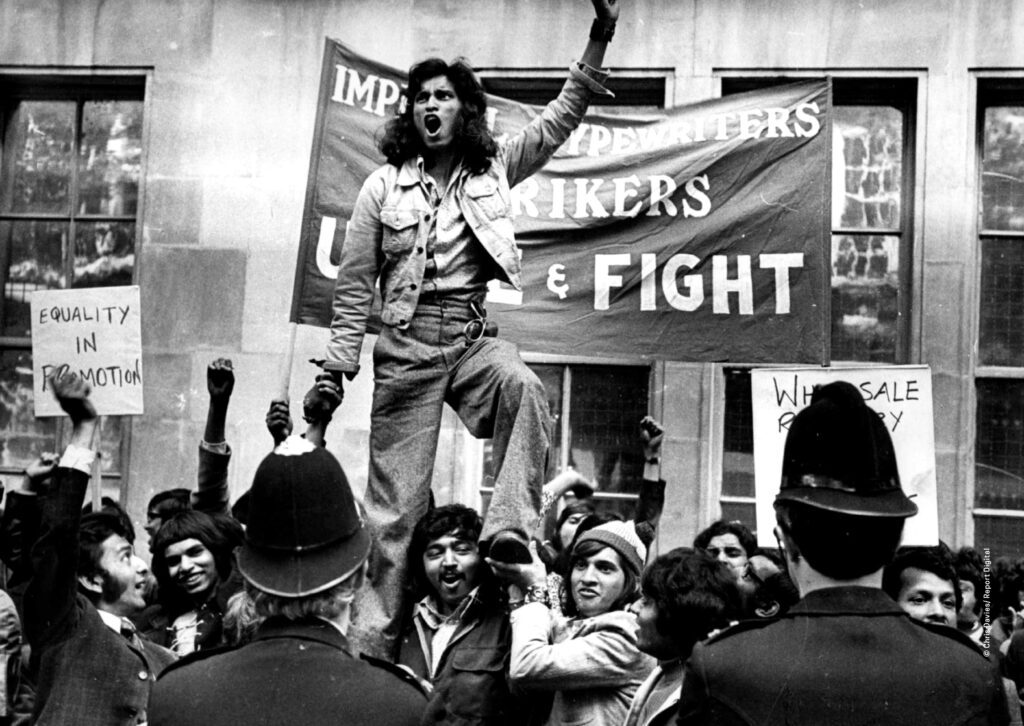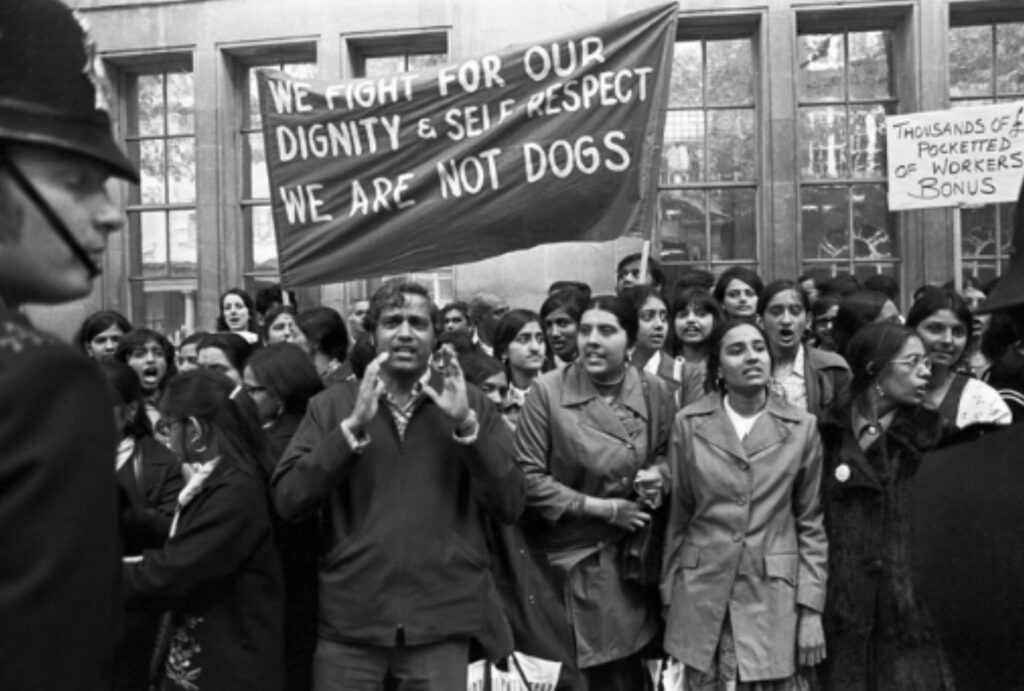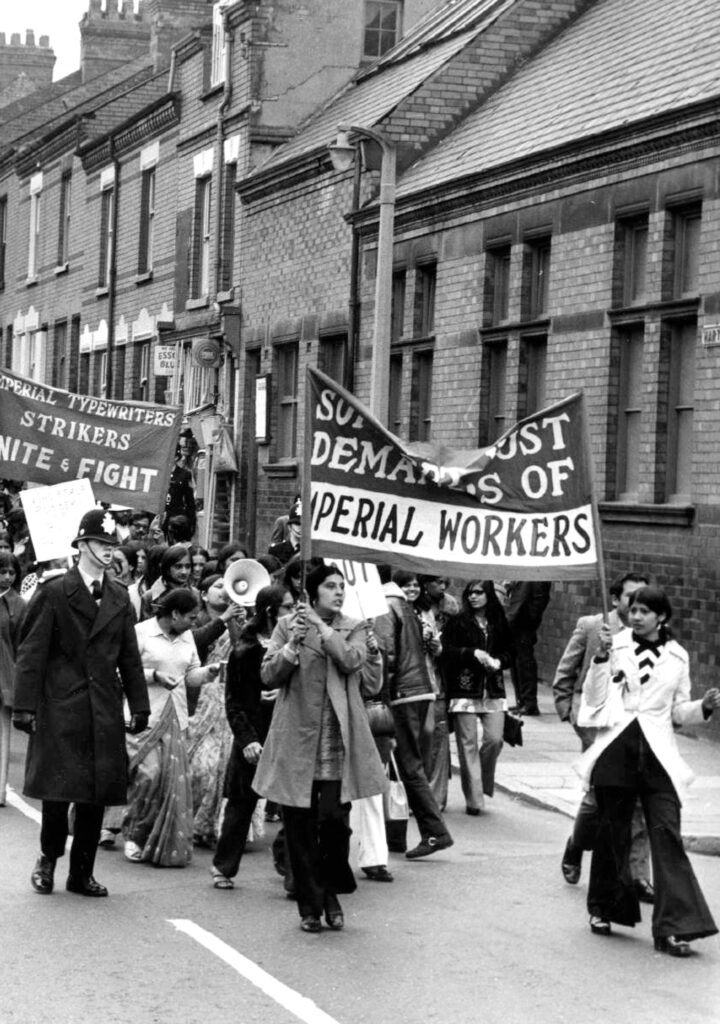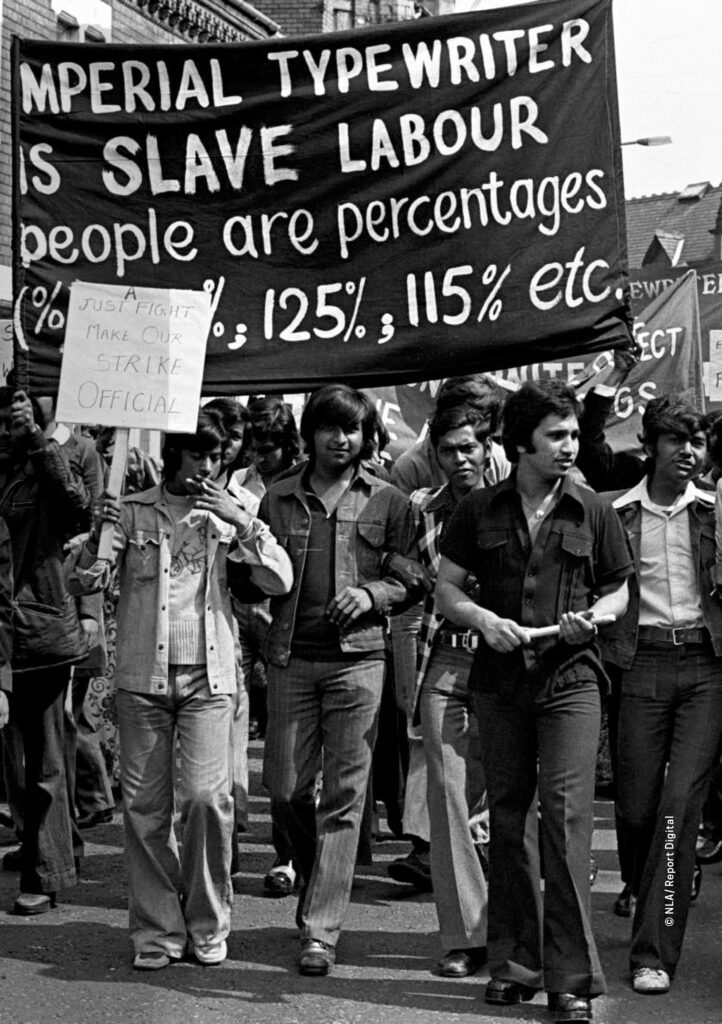STRIKING FOR EQUALITY AND DIGNITY
In May 1974, a mix up at Imperial Typewriters saw an Asian woman wrongly given the pay packet of a white female colleague. She and her friends were shocked to see they were getting paid less than white workers of the same grade. They decided something must be done.
Some 1,100 of the 1,600 workers at Imperial Typewriters were South Asian. Angry at being treated as second class, the group of 39, mostly women workers, led a walk out. They soon had the backing of hundreds more workers with grievances of their own.
Picket lines were loud and boisterous, with young people determined to play a leading role. Several Asian men were arrested during that long summer, and pickets were sometimes attacked by racists. But the strike held firm. Strikers returned to work having won a number of concessions.
Five months later Litton Industries closed Imperial Typewriters and decided to move production abroad. Despite this bitter disappointment, many strikers felt proud of what they’d done. They had shown that Asian workers not a pushover and that they deserved respect and equality.
This exhibition includes archival research and oral histories from both strikers and non-strikers to give a true and in-depth account.
BACKGROUND
An American multinational called Litton Industries bought Imperial Typewriters in 1966, after which recruitment focussed on workers from former British colonies such as India, Pakistan, and countries in the Caribbean. In 1972, when thousands of Ugandan Asians came to Leicester, they too found work on Imperial’s assembly lines. The factory’s bosses, like those elsewhere, saw migrant workers as cheap labour.
Many trade unions saw migrant workers as a threat. If bosses could bring in new workers on worse conditions, then everyone would suffer.
But Britain in the 1970s was awash with strikes, and a mood of militancy was spreading to the newly arrived workers. Asian workers’ strikes across the country were demanding equality on the shop floor and proving to unions and bosses that migrant workers could organise and stand up for themselves.
THE IMPERIAL TYPEWRITER COMPANY
The Imperial Typewriter Company was a British manufacturer of typewriters based in Leicester, England – the last company to make working typewriters in the UK. In 1974, the factory sacked 40 South Asian workers without any reason.
When the Transport & General Workers Union refused their support, the workers staged a mass walkout that lasted 14 weeks. The factory shut down completely soon after.












